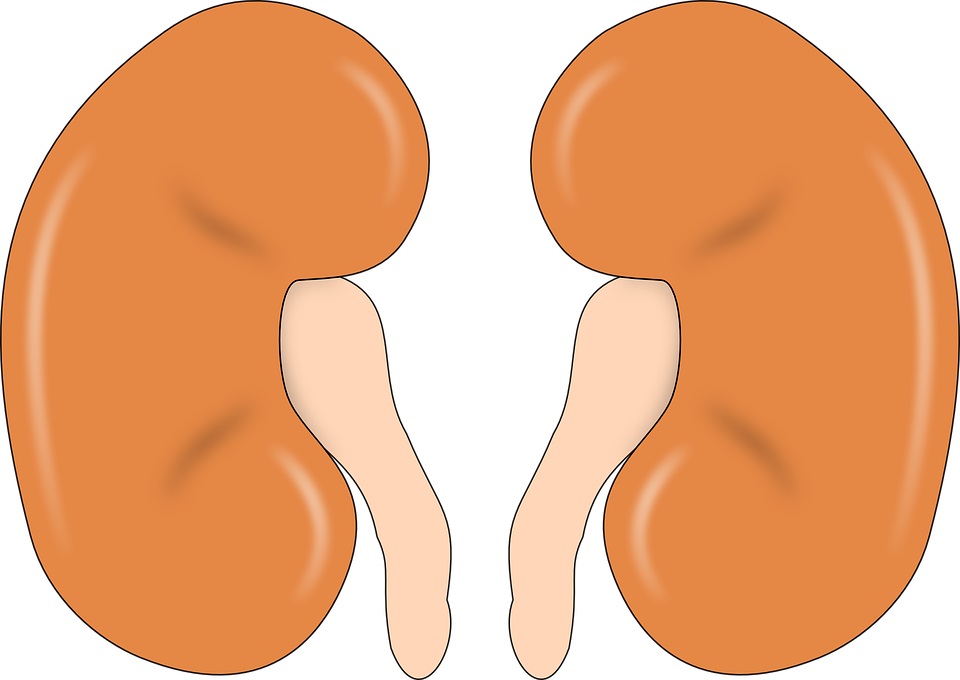-
New study shows air pollution linked to heart damage in kidney disease patients

The We For News reported according to new research that air pollution may have detrimental heart-related effects in people with kidney disease.
Air pollution is a major contributor to cardiovascular and kidney complications, but the mechanisms linking it with cardiorenal events are not well understood.
A team of researchers from Case Western Reserve University, in the US, sought to assess whether Galectin 3 level — a marker of myocardial fibrosis and remodeling is associated with air pollution exposure in hypertensive patients with and without chronic kidney disease.
Cardiac fibrosis is a scarring event in the cardiac muscle.
The study examined 1,019 adults, comparing satellite-derived PM2.5 measurements with participants’ systolic blood pressure level (the top number on a blood pressure reading).

They found no link between air pollution exposure and blood levels of Galectin 3 — a marker of scarring in the heart.
However, in adults who had chronic kidney disease (CKD) in addition to hypertension, air pollution exposure was associated with rising levels of Galectin 3 over time.
Read more: China LGBT rights group halts its work amid hostile environment
“Air pollution may be directly linked to the development of myocardial fibrosis in individuals with CKD,” said lead author Hafsa Tariq, from the varsity.
She added: “Efforts to limit air pollution could have a beneficial effect on lowering subclinical cardiovascular disease in CKD.”
Further studies are needed to corroborate these findings with rigorous cardiac imaging studies, Tariq said.
The findings will be presented online at ASN Kidney Week 2021 November 4-7.
Various studies have showed that short-term exposure to PM10 was significantly associated with elevated systolic blood pressure in young adults, while long-term exposure to PM2.5, PM10 and nitrogen dioxide were associated with elevated systolic levels as well as diastolic level (the bottom number on a blood pressure reading).
Read more: UN investigator says crimes against humanity under Myanmar junta
Besides, with the ongoing Covid pandemic having airborne transmission, particulate matter in the air could act as a carrier to increase the spread of the virus.
Studies have shown that an increase of only one microgram per cubic metre in PM 2.5 — dangerous tiny pollutants in the air — is associated with an 8 per cent increase in the Covid-19 severity and death rate.
Air pollution also weakens the immune system, compromising ability to fight off infection. Long-term exposure to chronically high PM2.5 levels weakens the ability of the lungs to clear off infections due to compromise in immunity, making general population more prone to acquire Covid-19.
Source: wefornews
You May Also Like
Popular Posts
Caricature
BENEFIT Sponsors BuildHer...
- April 23, 2025
BENEFIT, the Kingdom’s innovator and leading company in Fintech and electronic financial transactions service, has sponsored the BuildHer CityHack 2025 Hackathon, a two-day event spearheaded by the College of Engineering and Technology at the Royal University for Women (RUW).
Aimed at secondary school students, the event brought together a distinguished group of academic professionals and technology experts to mentor and inspire young participants.
More than 100 high school students from across the Kingdom of Bahrain took part in the hackathon, which featured an intensive programme of training workshops and hands-on sessions. These activities were tailored to enhance participants’ critical thinking, collaborative problem-solving, and team-building capabilities, while also encouraging the development of practical and sustainable solutions to contemporary challenges using modern technological tools.
BENEFIT’s Chief Executive Mr. Abdulwahed AlJanahi, commented: “Our support for this educational hackathon reflects our long-term strategic vision to nurture the talents of emerging national youth and empower the next generation of accomplished female leaders in technology. By fostering creativity and innovation, we aim to contribute meaningfully to Bahrain’s comprehensive development goals and align with the aspirations outlined in the Kingdom’s Vision 2030—an ambition in which BENEFIT plays a central role.”
Professor Riyadh Yousif Hamzah, President of the Royal University for Women, commented: “This initiative reflects our commitment to advancing women in STEM fields. We're cultivating a generation of creative, solution-driven female leaders who will drive national development. Our partnership with BENEFIT exemplifies the powerful synergy between academia and private sector in supporting educational innovation.”
Hanan Abdulla Hasan, Senior Manager, PR & Communication at BENEFIT, said: “We are honoured to collaborate with RUW in supporting this remarkable technology-focused event. It highlights our commitment to social responsibility, and our ongoing efforts to enhance the digital and innovation capabilities of young Bahraini women and foster their ability to harness technological tools in the service of a smarter, more sustainable future.”
For his part, Dr. Humam ElAgha, Acting Dean of the College of Engineering and Technology at the University, said: “BuildHer CityHack 2025 embodies our hands-on approach to education. By tackling real-world problems through creative thinking and sustainable solutions, we're preparing women to thrive in the knowledge economy – a cornerstone of the University's vision.”
opinion
Report
ads
Newsletter
Subscribe to our mailing list to get the new updates!






















